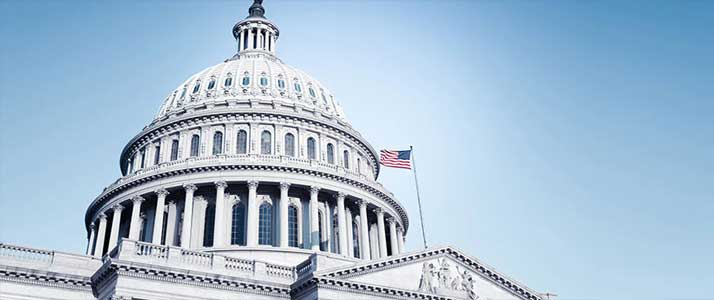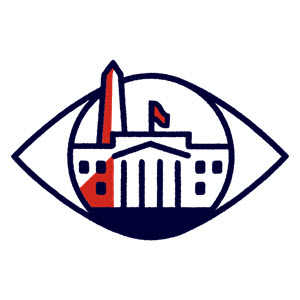California Meal and Rest Break Requirements for Employees Working Remotely SB 729 Failed – Would Have Suspended PAGA Enforcement

The failure of this legislation means that California employers will need to be extremely diligent in administering meal and rest breaks, even for employees who are working from home.
The California legislature recently failed to pass legislation which would have limited the legal liability of employers for possible labor code violations related to meal and rest breaks, when employees are working from home due to the COVID-19 pandemic. The failure of this legislation means that California employers will need to be extremely diligent in administering meal and rest breaks, even for employees who are working from home. Employers remain subject to all labor laws, even during the pandemic.
As background, under California law, when an employee works for a work period of more than five hours, a meal period of not less than thirty minutes must be provided no later than the end of the employee's fifth hour of work; and when an employee works for a period of more than 10 hours, a second meal period must be provided no later than the end of the employee's tenth hour of work. The employee must be relieved of all duty during his or her meal period or the meal period is considered to be an "on duty" meal period that is counted as hours worked and compensated at the employee's regular rate of pay. Additionally, meal period premium pay is required for each workday that the meal period is not provided. Meal period rules are subject to certain waivers by mutual consent, and different rules may apply to employees under certain Industrial Welfare Commission Wage Orders (Wage Orders) .
Wage Orders also require that employers must authorize and permit nonexempt employees to take a rest period that must, insofar as practicable, be taken in the middle of each work period. The rest period is based on the total hours worked daily and must be at the minimum rate of a net ten consecutive minutes for each four-hour work period, or major fraction thereof. If an employer does not authorize or permit the required rest period, the employer must pay the employee one hour of pay at the employee's regular rate of pay for each workday that rest period is not provided.
California labor law is somewhat unique in that it permits enforcement of meal and rest break requirements, as well as other wage and hour requirements, through private civil suits. The Labor Code Private Attorneys General Act of 2003 (PAGA) authorizes employees to bring civil actions to recover penalties that would normally be collected by the Office of the Labor Commissioner. Employees can also pursue lawsuits on behalf of other employees for violations. Consequently, California employers can be subject to civil lawsuits related to labor code violations, which are normally enforced by the Office of the Labor Commissioner.
SB 729 would have prohibited employees from recovering civil penalties from an employer under the Private Attorneys General Act (PAGA) for violations related to the employer's obligation to provide meal and rest breaks, if both of the following are true:
- After March 18, 2020, the employee began to work from the employee's home or elsewhere at the employer's direction, related to the COVID-19 pandemic.
- The alleged violations occurred after March 18, 2020, and before 2023, and are for meal or rest breaks the employer failed to provide to an employee while that employee was working for the employer from home or other place of residence. This prohibition would only apply if the employee does not reside on property owned by the employer or provided by the employer to the employee.
California legislation enacted last year found that employers are experiencing a high volume of PAGA claims related to labor code violations, such as incomplete or incorrect pay statements. AB 1654 (Chapter 529, Statutes of 2018), signed into law on September 19, 2018, now exempts employers and employees in the construction industry and covered by a collective bargaining agreement from PAGA. According to the bill sponsor, "PAGA . . . has led to the unintended consequence of significant legal abuse. PAGA, in effect, encourages class action type lawsuits over minor employment issues . . . The threat of extended litigation . . . on behalf of an entire class of workers provides enormous pressure on employers to settle claims regardless of the validity of those claims."
The legislative analysis for AB 1654 reported that the California agency receives approximately 6,000 new PAGA claim notices annually. Many such suits address relatively minor technical violations of the law, since it is unnecessary to establish harm to prevail in a PAGA suit.
Employers have raised concerns about the proliferation of PAGA lawsuits involving inadvertent technical errors on wage statements, when employees are paid correctly. However, recent efforts to reform PAGA have failed, with the exception of AB 1654, which only exempts the construction industry under collective bargaining agreements from PAGA.
Similarly, AB 443 and AB 789/SB 1129 failed to progress in the California legislature this year. AB 443 would have limited attorney's fees related to wage statement requirements and private (PAGA) enforcement. AB 789/SB 1129 would have improved employers' ability to "cure" any violation of wage statement requirements under Labor Code 226(a) by using a specified cure procedure; and would have extended the deadline for corrections ("cure period") from 33 days to 65 days. These bills were not enacted.
In short, even in this COVID-19 environment, California employers must exercise careful diligence and control in administering accurate and complete wage statements, required meal and rest periods, and other wage and hour requirements. California employers should consult with legal counsel and carefully review their wage statements and meal and rest break policies; e.g., taking action as appropriate to document compliance with meal and rest break requirements, specifically with respect to employees working from home, as well as all other aspects of California labor law.
For additional information, see:
www.dir.ca.gov/dlse/faq_mealperiods.htm
www.dir.ca.gov/dlse/faq_restperiods.htm
ADP Compliance Resources
ADP maintains a staff of dedicated professionals who carefully monitor federal and state legislative and regulatory measures affecting employment-related human resource, payroll, tax and benefits administration, and help ensure that ADP systems are updated as relevant laws evolve. For the latest on how federal and state tax law changes may impact your business, visit the ADP Eye on Washington Web page located at www.adp.com/regulatorynews.
ADP is committed to assisting businesses with increased compliance requirements resulting from rapidly evolving legislation. Our goal is to help minimize your administrative burden across the entire spectrum of employment-related payroll, tax, HR and benefits, so that you can focus on running your business. This information is provided as a courtesy to assist in your understanding of the impact of certain regulatory requirements and should not be construed as tax or legal advice. Such information is by nature subject to revision and may not be the most current information available. ADP encourages readers to consult with appropriate legal and/or tax advisors. Please be advised that calls to and from ADP may be monitored or recorded.
If you have any questions regarding our services, please call 855-466-0790.
ADP, Inc.
One ADP Boulevard, Roseland, NJ 07068
adp.com
Updated on October 9, 2020



